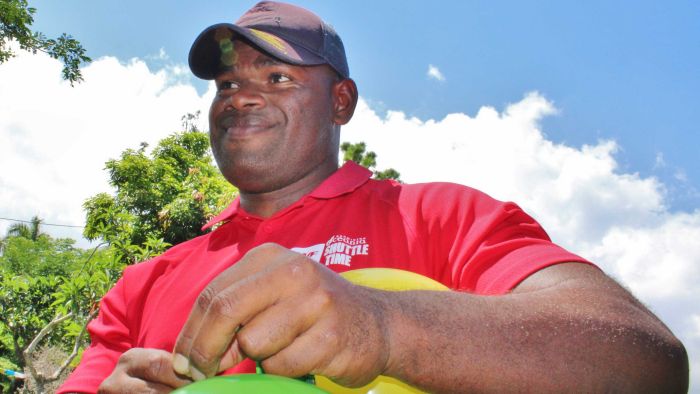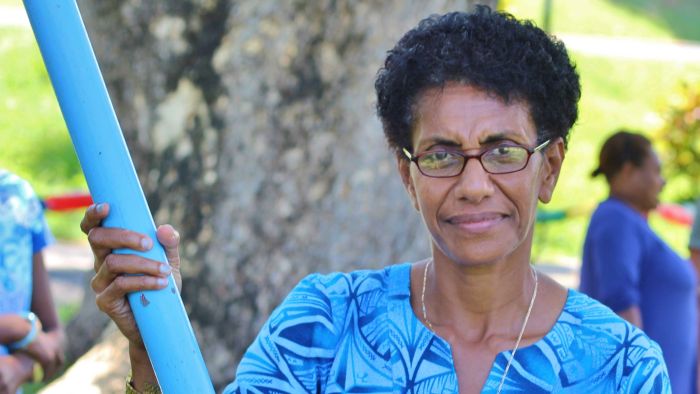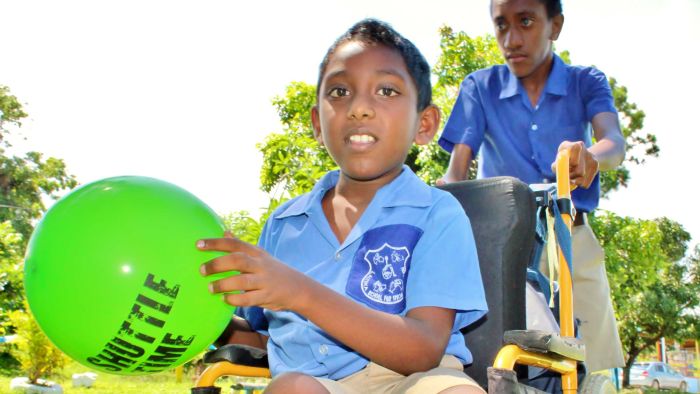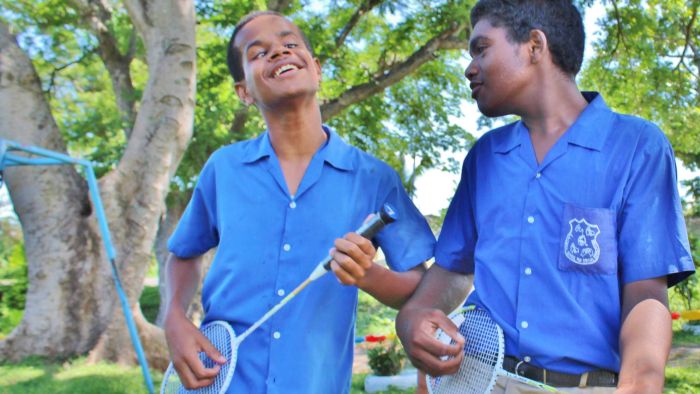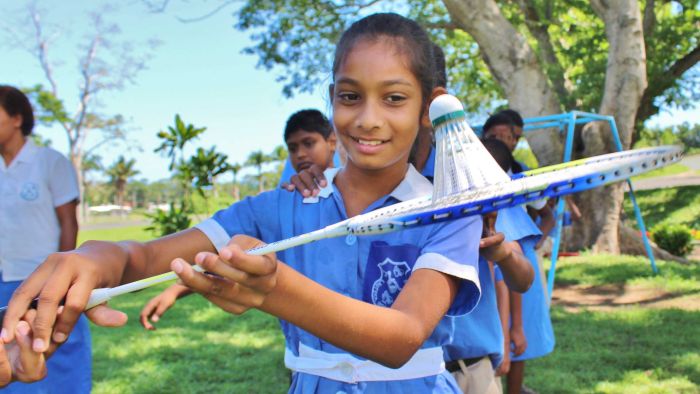
It is a scene of pure joy.
Two teens pretend they are playing a rocking guitar solo on their racquets.
A barefoot boy balances a shuttlecock on his racquet and flashes a satisfied grin at the teacher encouraging him.
Abdul declares he loves me and everyone else – many, many times over – while Lazarus is giving out unsolicited free hugs.
And then there’s the yellow and green balloons. Lots of them.
It could be the birthday party that childhood dreams are made of but it is actually a badminton coaching clinic, and more importantly, a sport for development program being run at Lautoka School for Special Education in Fiji.
